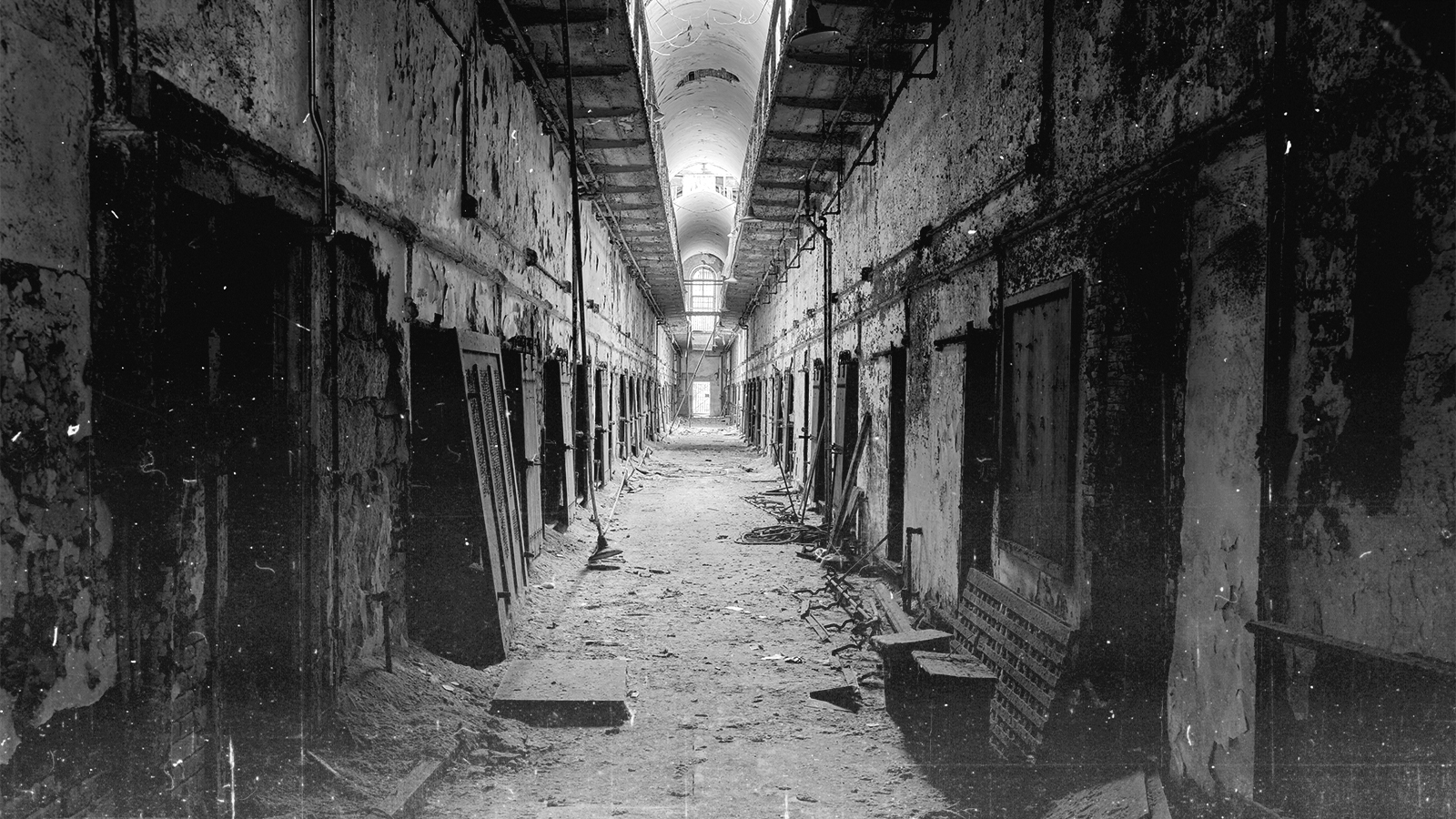The American prison system is the haunted house of tomorrow


A free daily email with the biggest news stories of the day – and the best features from TheWeek.com
You are now subscribed
Your newsletter sign-up was successful
If you believe the stories — and I'm not entirely sure I don't — America is very, very, very haunted.
We have haunted houses and haunted hotels, haunted courthouses and haunted cemeteries, haunted theaters, haunted restaurants, haunted bridges, haunted boats, and even entire haunted towns. Colin Dickey, author of Ghostland: An American History in Haunted Places, points out an obvious reason this country's dead are so unsettled: "There's precious little land in the United States that hasn't been contested, one way or another, through the years," he writes, alluding to the genocide of the continent's Indigenous peoples, a skeleton in our national closet. "Americans live on haunted land because we have no other choice."
But if ghost-infested suburbia is a phantasmic reflection of our nation's historic sins, another Halloween trope reflects an ongoing evil: the haunted prison.
The Week
Escape your echo chamber. Get the facts behind the news, plus analysis from multiple perspectives.

Sign up for The Week's Free Newsletters
From our morning news briefing to a weekly Good News Newsletter, get the best of The Week delivered directly to your inbox.
From our morning news briefing to a weekly Good News Newsletter, get the best of The Week delivered directly to your inbox.
Whether it's the Eastern State Penitentiary in Philadelphia, the Ohio State Reformatory in Mansfield, or Alcatraz in San Francisco, every old, still-standing prison seems to have enough ghost stories to fill an entire season of TV for the Travel Channel. The reason is simple: These facilities were notorious for brutal and inhumane treatment of their inmates.
The Eastern State Penitentiary used "harsh punishments" that were "enough to make you shiver even without seeing a ghost," NPR writes, describing horrors with names like "the mad chair," "the Hole," and "the iron gag." Over 200 prisoners died of disease and neglect, murder, or suicide while incarcerated at the Ohio State Reformatory, the prison from The Shawshank Redemption. Alcatraz was so dark, damp, and hopeless it was already considered haunted while still in use.
Many of these prisons now exploit the historic abuse of incarcerated people with seasonal ghost tours. But what's really chilling is that these horrors don't belong to some distant past: Alcatraz only closed in 1963, the Eastern State Penitentiary in 1971, and the Ohio State Reformatory in 1990. Abuse of the incarcerated isn't a hoary ghost story; it's real and it continues.
Where, then, will we hold the ghost tours of tomorrow? If New York City's Rikers Island ever closes, will there one day be tour guides talking about prison conditions as barbaric as "the mad chair?" Will our immigration detention centers one day sell tickets to spooktacular Halloween celebrations? Will teenagers one day shudder closer together in one of the dark federal prisons where more than 2,700 people died of COVID-19?
A free daily email with the biggest news stories of the day – and the best features from TheWeek.com
"Americans live on haunted land because we have no other choice" wrote Dickey of our phantom infestation in Ghostland. Only, with prisons, we do: We can choose to care well for incarcerated people while they're still with us.
Jeva Lange was the executive editor at TheWeek.com. She formerly served as The Week's deputy editor and culture critic. She is also a contributor to Screen Slate, and her writing has appeared in The New York Daily News, The Awl, Vice, and Gothamist, among other publications. Jeva lives in New York City. Follow her on Twitter.
-
 The Olympic timekeepers keeping the Games on track
The Olympic timekeepers keeping the Games on trackUnder the Radar Swiss watchmaking giant Omega has been at the finish line of every Olympic Games for nearly 100 years
-
 Will increasing tensions with Iran boil over into war?
Will increasing tensions with Iran boil over into war?Today’s Big Question President Donald Trump has recently been threatening the country
-
 Corruption: The spy sheikh and the president
Corruption: The spy sheikh and the presidentFeature Trump is at the center of another scandal
-
 Is a social media ban for teens the answer?
Is a social media ban for teens the answer?Talking Point Australia is leading the charge in banning social media for people under 16 — but there is lingering doubt as to the efficacy of such laws
-
 Why are American conservatives clashing with Pope Leo?
Why are American conservatives clashing with Pope Leo?Talking Points Comments on immigration and abortion draw backlash
-
 Questions abound over the FAA’s management of Boeing
Questions abound over the FAA’s management of BoeingTalking Points Some have called the agency’s actions underwhelming
-
 'Immigrant' Superman film raises hackles on the right
'Immigrant' Superman film raises hackles on the rightTALKING POINT Director James Gunn's comments about the iconic superhero's origins and values have rankled conservatives who embrace the Trump administration's strict anti-immigrant agenda
-
 Disney is still shielding Americans from an episode of 'Bluey'
Disney is still shielding Americans from an episode of 'Bluey'Talking Points The US culture war collides with a lucrative children's show
-
 Jony Ive's iPhone design changed the world. Can he do it again with OpenAI?
Jony Ive's iPhone design changed the world. Can he do it again with OpenAI?Talking Points Ive is joining OpenAI, hoping to create another transformative piece of personal technology. Can lightning strike twice?
-
 Is method acting falling out of fashion?
Is method acting falling out of fashion?Talking Points The divisive technique has its detractors, though it has also wrought quite a few Oscar-winning performances
-
 From Panopticon to pleasure dome: Dutch prisons transformed
From Panopticon to pleasure dome: Dutch prisons transformedUnder the Radar The Netherlands is turning its domed prisons of 'terror' into vibrant community spaces
